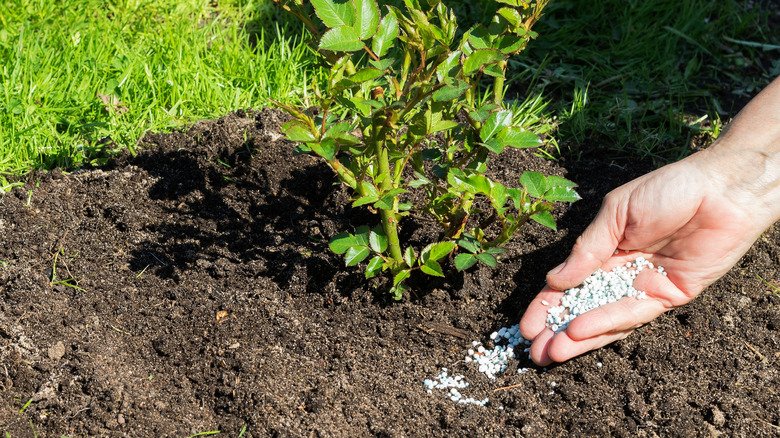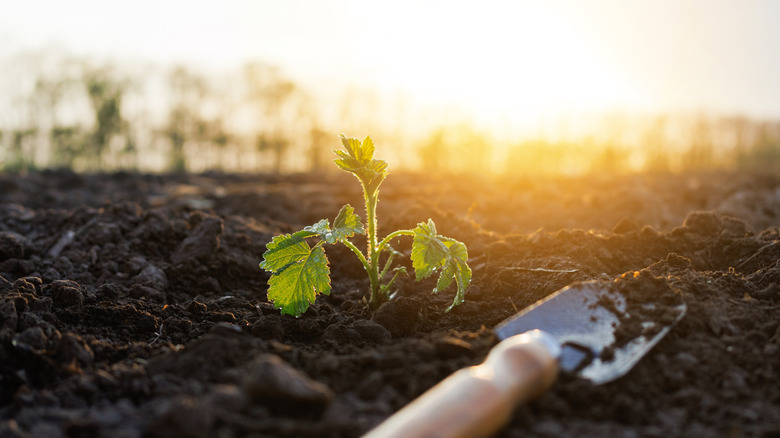Unlock Your Garden's Potential With The Best Time To Fertilize Plants
Fertilizing your garden is an important step when you want to give your plants a nutrient boost, and knowing exactly when to do that is important to make sure the nutrients are being absorbed to their fullest. Much like the best time of day to water your garden, the best time to fertilize is in the early mornings, shortly after sunrise, but before the sun's heat gets too strong. Morning fertilization takes advantage of many factors that boost its effectiveness. The damp soil and morning temperatures prevent moisture evaporation, allowing fertilizers time to properly dissolve and get into the soil. A plant's daily growth cycle also begins in the morning, allowing them to take advantage of the early morning nutrients and metabolize them throughout the day.
Of course, different plants have different needs, so make sure you know what kind and how much fertilizer your garden needs. These choices can also influence the perfect fertilization time. Vegetable gardens would get the most out of fertilization in the morning every 3 to 4 weeks during peak growing season. Perennials, however, should receive nutrients before they begin their blooming season in spring. Trees and shrubs would benefit from fertilizers used in the early fall as they prepare for winter. Avoid using fertilizers during droughts or extreme heat — stressed plants can't properly utilize nutrients, and it may do more harm than good. Make sure you always check the soil before adding fertilizer as well. It should feel damp but not soggy or overly dry.
Why fertilizing in the morning works best
Fertilizing your lawn in the morning works well with your plants' natural biological processes. As the sunlight begins to appear, plants increase their metabolic activity through photosynthesis, creating a demand for the nutrients inside most fertilizers. The type of fertilizer you use should also influence your timing. Granular fertilizers should be applied slightly earlier in the morning as they take time to break down. Liquid fertilizers work better closer to the sunrise since they provide an almost immediate boost of nutrients.
There are some important things you should never do when fertilizing your lawn. Always avoid using fertilizers before or after a heavy rain to prevent runoff, which not only wastes your money but could also drain into nearby waterways. Also, read the packaging of any fertilizer you buy and follow the manufacturer's instructions. Once applied, check on your plants periodically during the day. Look for signs of over-fertilization like leaf tip burning or sudden wilting. If you see these sorts of problems, you may need to flush your soil with clean water and try again another day. By combining proper timing with the appropriate fertilizers, you'll begin seeing healthier plants and get more out of your gardening budget.

